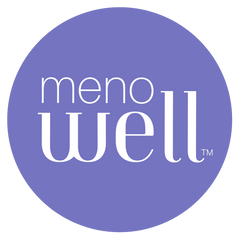5 Ways Nutrition Shifts in Perimenopause

When your hormones begin to shift in perimenopause, everything from your energy to your digestion can start to feel a little... off. That’s because the changes happening inside your body during this time affect nearly every system—especially how your body uses, stores, and needs nutrients.Let’s walk through the top five ways nutrition changes in perimenopause—and why knowing them can help you feel better, stronger, and more in control of your body.
1. Your Protein Needs Go Up
During perimenopause, estrogen levels begin to fluctuate—and eventually decline. Estrogen plays a big role in how your body builds and maintains muscle. So when those levels shift, your body may start losing lean muscle, even if your weight stays the same.
This is why getting enough protein becomes more important than ever. Protein helps support muscles, keeps you full longer, and supports a steady energy level throughout the day.
For many women in midlife, that means making an effort to include protein at every meal, not just dinner. And don’t forget snacks—a protein-packed bar or smoothie can help you meet your daily goals without the blood sugar crash.
2. Blood Sugar Swings Are More Common
With hormonal changes can come more noticeable shifts in blood sugar. You might find you’re more sensitive to sugary foods—or feel tired and cranky if you go too long without eating.
Keeping your blood sugar steady is key in perimenopause. One of the best ways to do this? Eat meals and snacks that include fiber, protein, and healthy fats. This slows the absorption of sugar in your bloodstream and helps you avoid energy crashes and cravings.
Also, try to limit processed snacks and sugary drinks, which can spike blood sugar and leave you feeling worse later.
3. Digestion Can Feel “Off”
Many women notice more bloating, constipation, or irregularity in perimenopause. That’s partly because your gut and hormones are more connected than most people realize. Estrogen changes can affect how quickly food moves through your digestive tract—and how your gut microbiome behaves.
That’s why fiber is your friend in perimenopause. It helps keep things moving, feeds the good bacteria in your gut, and keeps you feeling full.
Whole grains, veggies, legumes, and fruits are great sources of fiber. And if you’re not getting enough, adding a fiber-rich snack bar can be an easy way to boost your intake.
CHECK FOR DISCOUNTS AND SHOP ON AMAZON
4. You May Need More Nutrients
Here’s a tricky thing about midlife: you may need more of certain nutrients—like calcium, magnesium, and B vitamins.This means nutrient density becomes more important than ever. The goal isn’t to eat less—it’s to make sure what you are eating is giving your body what it needs.
That means choosing whole, minimally processed foods most of the time and reaching for snacks that are more than just empty calories.
5. Cravings & Emotional Eating Are Real!
Hormone changes can also affect mood—and that can affect how and why we eat. Some women notice more cravings for sweet or salty foods in perimenopause, or they find themselves eating for comfort during stressful moments.
You’re not alone, and there’s nothing “wrong” with you. But it can help to have smart snacks on hand that feel satisfying without setting you up for a crash later.
Foods that contain a mix of natural sweetness, protein, and healthy fat can help you feel emotionally and physically more balanced between meals.
Bringing It All Together
Perimenopause isn’t just a hormonal rollercoaster—it’s a time to tune in to what your body really needs. More steady energy. Better digestion. Muscle support. Foods that make you feel good without the crash.
The key is choosing snacks and meals that do more—ones that deliver fiber, protein, and nutrients to help support your midlife journey.
If you’re looking for a grab-and-go option made with women’s unique midlife needs in mind, there are snacks crafted with these changes in mind. You deserve support that works as hard as you do.
CHECK FOR DISCOUNTS AND SHOP ON AMAZON
Sources:
-
North American Menopause Society.
-
Academy of Nutrition and Dietetics.
-
Harvard T.H. Chan School of Public Health.





